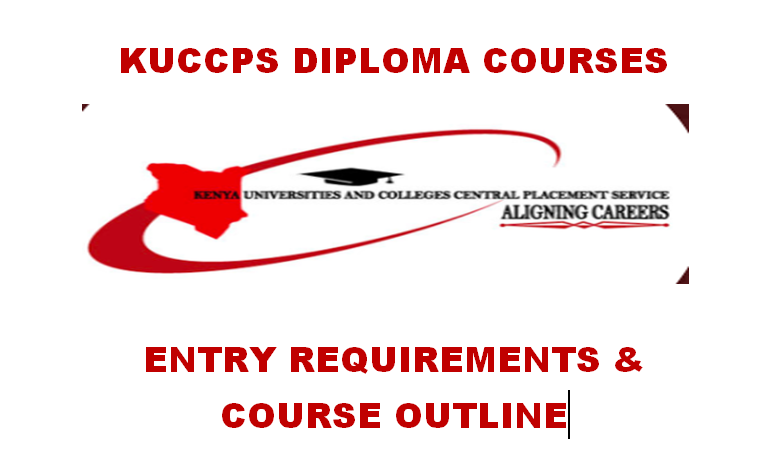Diploma in automotive engineering course outline entry requirements and all the related concerning diploma in automotive engineering here. Automotive engineers design and build the mechanics and systems of cars. A diploma in automotive engineering will prepare students for an entry level or assistant position in a variety of fields. The course will impart general knowledge to enable the trainee to contribute positively to the society and prepare the trainees for further academic pursuit.
- Course duration: 3 years (3 modules)
- Examination body: KNEC
Diploma in automotive engineering Entry requirements
Diploma in automotive engineering is examined by KNEC and is offered by various approved TVETS, universities and colleges in Kenya. The entry requirements are;
- KCSE aggregate Grade of C- and above or its equivalent as acceptable Qualification by KNEC
- Pass in Relevant Certificate Qualification Learning Outcomes for example a certificate in automotive engineering graduate wishing to upgrade his or her qualifications need to have obtained a PASS result from a recognized institution to enroll for Diploma in automotive engineering.
- Mean grades for specific KCSE subjects are not specified for Diploma in automotive engineering course
Universities and colleges offering Diploma in automotive engineering courses
Trainees wishing to enroll for a Diploma in automotive engineering course can easily choose from various institution offering the course. Full institutions are always listed on KUCCPS portal as soon as it is open for application during various intakes, for more on this just visit the KUCCPS portal here
Diploma in automotive engineering course outline
Diploma in automotive engineering is offered in 3 modules. 1 module takes a duration of 6 months then an examination is always administered at the end of each module for trainees to proceed to field attachment and eventually the next module. Attachment is always offered twice module 1 and module 2. The final exam is administered in module 3 for a candidate to graduate into the field market.
Career opportunities in diploma in automotive engineering
- Some employment opportunities include positions like automotive engineering technician, automotive design engineer, mechanical engineer, product designer or mechanical engineer.
The following are a list of units/ subjects studied at Diploma in automotive engineering module 1
- ICT
- Materials & Workshop Technology
- Vehicle Technology
- Engineering Drawing I
- Mathematics I
- Electrical Principles
- Mechanical Science I
- Entrepreneurship
- Communication
- Occupational Safety & Precautions
The following are a list of units/ subjects studied at Diploma in automotive engineering module 2
- Industrial Organization & Management
- Strength of Materials & Mechanics of Machines
- Engineering Drawing II
- Engine Technology and Vehicle Bodywork
- Mathematics II
The following are a list of units/ subjects studied at Diploma in automotive engineering module 3
- Computer Aided Design (CAD)
- Control Systems & Instrumentation
- Mathematics III
- Thermodynamics & Fluid Mechanics
- Auto Electrics & Electronics
- Trade Project
FREE CERTIFICATE& DIPLOMA COURSES KNEC PAST PAPERS:
- Diploma in ICT module 2 KNEC past papers Free download
- Diploma in ICT module 3 KNEC past papers Free download
- Certificate in ICT module 1 KNEC past papers Free download
- Certificate in ICT module 2 KNEC past papers Free download
- Diploma in Electrical and electronic engineering module 1 KNEC past papers Free download
- Diploma in electrical and electronic engineering module 2 KNEC past papers Free download
- Diploma in Human resource management module 1 KNEC past papers Free download
- Diploma in human resource management module 2 KNEC past papers Free download
- Craft in supply chain management module 1 KNEC past papers Free download
- Certificate in electrical and electronic engineering module 1 KNEC PAST PAPERS
- Certificate in electrical and electronic engineering module 2 KNEC PAST PAPERS
- Craft in supply chain management module 1 KNEC PAST PAPERS
- Diploma in building technology module 1 KNEC PAST papers
- Diploma in building and technology module 2 KNEC past papers
- Diploma in building and technology module 3 KNEC past papers
- Diploma in civil engineering module 1 KNEC PAST PAPERS
- Diploma in civil engineering module 2 KNEC PAST PAPERS
- Diploma in civil engineering module 3 KNEC PAST PAPERS
- Craft in supply chain management module 2 KNEC PAST PAPERS
- Diploma in Quantity survey KNEC past papers
- Certificate in plumbing module 1 KNEC past papers
- Certificate in building and technology module 1 KNEC past papers
- Certificate in building and technology module 2 KNEC past papers
- Diploma in social work and community development module 1 KNEC past papers
- Diploma in social work and community development module 2 KNEC past papers
- Diploma in social work and community development module 3 KNEC past papers
- Diploma in electrical and electronic engineering module 3 KNEC past papers
- Diploma in Human resource management module 3 KNEC past papers
- Diploma in supply chain management module 3 KNEC past papers
- Diploma in supply chain management module 1 KNEC past papers
- Certificate in human resource management module 2 KNEC past papers
- Diploma in supply chain management module 2 KNEC past papers
- Certificate in human resource management module 1 KNEC past papers
COURSE NOTES
- Introduction to ICT and ethics notes PDF
- Communication skills notes PDF
- Entrepreneurship notes PDF
- Economics notes PDF
- Financial accounting notes PDF
- Business law notes PDF
- Research methodology notes PDF guide
- Trade project notes & PDF sample
- Principles and practice of marketing notes PDF
- Microprocessor systems notes PDF
- Management information system MIS notes PDF
- Data communication and networking notes PDF
- Internet based programming IBP notes PDF
- Quantitative methods notes PDF
- Visual basic notes PDF
- Object oriented programming notes PDF
- Database management system notes PDF
- System analysis and design notes PDF
- Quantitative techniques notes PDF
- Principles and practice of management PPM notes PDF


This is good for the youth to do so that they can learn skills and there basics so that they can full fill their goals . Thank you
Absolutely! Learning skills and mastering the basics is like laying a solid foundation for those big goals. Keep pushing boundaries and reaching for the stars. If you ever need more resources or guidance, feel free to reach out. Happy learning